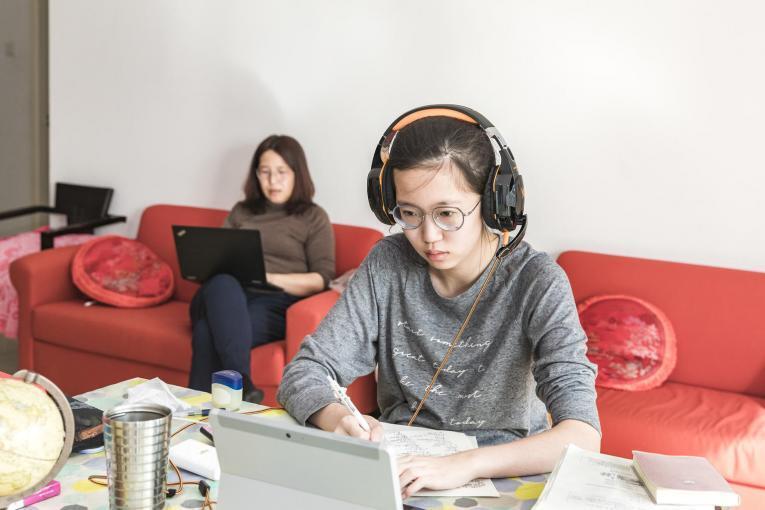
EU adopts new rules to significantly cut packaging waste with re-use targets
The European Union has formally adopted a regulation on packaging and packaging waste. The new ...

The schools closure over the coronavirus pandemic forced millions of children to stay for a very long time before screens for their online classes. UNICEF cautioned that these children are at increased risk of harm as their lives move increasingly online.
“The coronavirus pandemic has led to an unprecedented rise in screen time,” said Global Partnership to End Violence Executive Director Dr. Howard Taylor. “School closures and strict containment measures mean more and more families are relying on technology and digital solutions to keep children learning, entertained and connected to the outside world, but not all children have the necessary knowledge, skills and resources to keep themselves safe online.”
More than 1.5 billion children and young people have been affected by school closures worldwide. Many of these students are now taking classes as well as socializing more online. Spending more time on virtual platforms can leave children vulnerable to online sexual exploitation and grooming, as predators look to exploit the COVID-19 pandemic. A lack of face-to-face contact with friends and partners may lead to heightened risk-taking, while increased and unstructured time online may expose children to potentially harmful and violent content as well as greater risk of cyberbullying.
UNICEF together with its partners, Global Partnership to End Violence Against Children, International Telecommunication Union (ITU), United Nations Educational, Scientific and Cultural Organization (UNESCO), UN Office on Drugs and Crime (UNODC), WePROTECT Global Alliance, World Health Organization (WHO), and World Childhood Foundation USA (Childhood USA), is releasing a new technical note aimed at urging governments, ICT industries, educators and parents to be alert, take urgent measures to mitigate potential risks, and ensure children’s online experiences are safe and positive during COVID-19.
“Under the shadow of COVID-19, the lives of millions of children have temporarily shrunk to just their homes and their screens. We must help them navigate this new reality,” said UNICEF Executive Director Henrietta Fore.
“We call on governments and industry to join forces to keep children and young people safe online through enhanced safety features and new tools to help parents and educators teach their children how to use the internet safely.”
The preliminary recommended actions to mitigate online risks for children during COVID-19 called on governments to bolster core child protection services to make sure they remain open and active throughout the pandemic; train health, education and social service workers on the impacts that COVID-19 may have on child well-being, including increased online risks; step up awareness raising and educational initiatives on child online safety, and make sure social service providers, schools, parents and children are aware of local reporting mechanisms and have support numbers of local helplines and hotlines.
The recommendations also called for ensure online platforms have enhanced safety and safeguarding measures, especially virtual learning tools, and that they are clearly accessible to educators, parents and children; promote and facilitate child safety referral services and helplines; develop standard moderation policies that are aligned with children’s rights; employ built-in protection measures while innovating as appropriate, and provide internet connectivity to improve access for disadvantaged children in low-income households.
Schools has also to update current safeguarding policies to reflect the new realities for children learning from home; promote and monitor good online behaviors and ensure that children have continued access to school-based counselling services.
As for parents, they should ensure children’s devices have the latest software updates and antivirus programs; have open dialogues with children on how and with whom they are communicating online; work with children to establish rules for how, when, and where the internet can be used; be alert to signs of distress in children that may emerge in connection with their online activity, and be familiar with school district policies and local reporting mechanisms and have access to numbers of support helplines and hotline handy.
The European Union has formally adopted a regulation on packaging and packaging waste. The new ...
Inaugurating the Abydos Solar Power Plant in the Upper Egypt governorate of Aswan represents a ...
Businesses that fail to adapt to climate risks like extreme heat could lose up to ...


اترك تعليقا